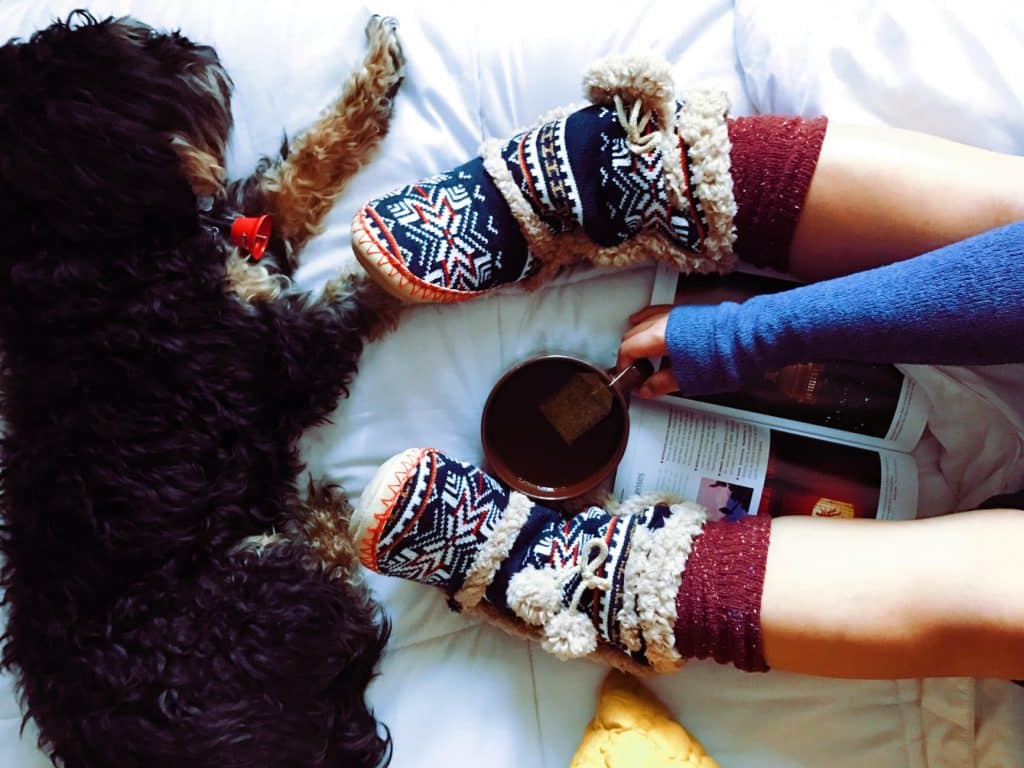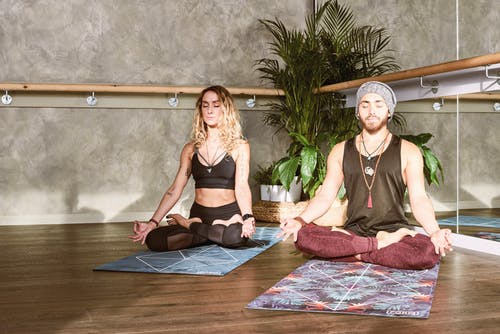
I can imagine that the idea of changing your lifestyle to one less focused on consuming could seem quite daunting, if not impossible. For most of us, however, I really think that very small changes could make a significant difference to our lives. In an attempt to help you with this, I have some suggestions to guide you towards living a life where you choose to spend less and live a little more simply:
Evaluate your spending patterns
When you have a quiet moment, have a really good think about your spending patterns. Are you spending more than you earn? Is this causing you stress or impacting other aspects of your life? Is there something you could cut down on? Preparing a monthly budget and a yearly plan may help with this, allowing you to see which expenses can be reduced, which are a necessity and where you tend to over-spend.
Think before you buy
We all love buying or receiving something new – a new pair of shoes or a nifty little coffee machine but, very often, the high of buying something new lasts only a few hours to a few days, at best. So, before you buy something, ask yourself – ‘Do I really need this?’. If you’re aware that you already have another 4 pairs of trainers, or a perfectly good coffee machine at home, sleep on it. If you still desperately want it in the morning, go and get it. Chances are that the temptation will have subsided and you’ll realise that you don’t need a fifth pair of trainers and 2 coffee machines after all.
Be honest about your working habits
Yes, we all need to earn a living. However, is your work and the number of hours you work causing you stress, anxiety and unhappiness? Is there something you can do to combat this? Here are a few ideas:
- If you must work 40 hours per week, do so, but be quite strict with yourself on this. If you’re tempted to put in a few hours extra on top of the 40 to get things done, think about the consequences of this on your relationships, health, etc.
- Create limits on how many hours you’re willing to work from home. If you’re leaving work only to start checking messages and emails as soon as you get home, you may as well still be at work. How can you unwind and relax if still switched on? And how present are you for your partner/family/friends/children if you’re focused on what’s happening at work rather than really listening to them or enjoying their company?
- Learn to say ‘no’. We’re often scared to say no to requests, even if saying ‘yes’ would create tons of additional stress and anxiety. Think about what it is that scares you about saying ‘no’. Are you worried people will think you’re not capable? That you’ll lose your job? They won’t like you? Whatever it is, think about whether such fears are realistic and whether pleasing others is worth compromising your health, personal relationships and well-being.
Choose experiences over possessions
A great deal of research has been conducted on the link between happiness and our choice to buy things or experiences. One such study, conducted over a 20-year period (Gilovich 2014), concluded that once our basic needs have been met, money only increases happiness to a certain point. It was also found that experiences, as opposed to material possessions, provide a more long-lasting feeling of satisfaction. There are a number of reasons for this. Firstly, whilst the happiness when purchasing a material good is only fleeting, an experience stays with us as a memory, opens our minds to new possibilities, teaches us something new and allows us to nourish and enjoy our social relationships. Furthermore, whilst material possessions are just something we own and eventually dispose of, experiences serve to impact and change us on a deeper level, giving us a sense of purpose, identity and meaning. Examples of experiences are travel, meals with friends, retreats, trip to a museum or art gallery, courses, day trip to Gozo or the beach, festivals, film nights, to name a few. And remember, you don’t need to spend too much to have a memorable experience.

Spend consciously
When tempted to make an impulsive buy, stop a moment and think about what it is you’re feeling which may be triggering your need to buy something. i.e. what non-material need are you trying to meet? If you’re scrolling through websites looking for something to buy, could it be that you’re in need of company, for instance? Are you feeling alone? Rather than buying something which won’t in fact curb your loneliness, try reaching out to a friend/sibling/parent. Even if in this moment you are unable to meet your emotional need, be very aware that buying something will only alleviate your discomfort temporarily.
Enjoy the simple things
Have you ever sat down with an older person, such as your grandmother, grandfather or elderly neighbour and listened carefully to their stories? If you have, you’ll have noticed that while they didn’t have the toys, electronic devices and money we have or had growing up, they were quite happy. Their lives were a lot simpler than ours, probably less exciting or eventful but they were happy with what they had. One thing I’m curious about is the point at which we stopped enjoying the simple pleasures. Life doesn’t need to be grand and constantly exciting for us to feel content. We are rarely living in the present moment and, in avoiding the present, we miss the small pleasures of life. My challenge to you is to experiment with savouring the simple pleasures. Some examples are:
- A hot bath/shower
- The feeling of the sun on your back
- The sound of a baby laughing
- Sitting on the sofa, wrapped in a blanket, watching a film
- Laughing out loud with a good friend
- Booking a holiday
- Hearing a song which gives you goosebumps
- Being greeted by your dog after a long day at work
- The smell of freshly baked bread
- Being offered chocolate when you’re tired and grumpy
- Being offered chocolate when you’re not tired and grumpy
- Sleeping in on a cold, Winter’s day
- A really good hair day – needless to say, this will be the day you’re not going out
- The anticipation of starting a new book
- Reading said book while sipping a cup of hot tea
- A beautiful sunrise/sunset
- A hug from someone you love
- Getting home after a day out and putting on tracksuit bottoms and a comfy top. Ah, the bliss!

Practice ‘being’ rather than ‘doing’
We live in a society where being busy and constantly being on-the-go is celebrated. We have ‘to-do’ lists as long as our arms, race from one task or meeting to another, and then wonder why we’re exhausted, stressed and anxious. When we’re in ‘doing’ mode, we’re focused on our goals, constantly measuring our progress against these goals and predominantly focused on the past and future – comparing our progress to past achievements and planning for the future. Being in ‘doing’ mode isn’t actually a bad thing. We need to be functional and do things. It becomes unhealthy when we don’t have a balance between doing/achieving and stopping to reflect, rest, acknowledge where we are and enjoying the moment we’re in.
This brings us to ‘being’ and how we can maximise these moments in our everyday lives. Clients often tell me that they find it hard, if not impossible, to relax or switch-off. They often feel uncomfortable or edgy when they try to sit still, not look at their phone and spend some time in silence. When we’re in ‘being’ mode, we’re in the present moment rather than lost in thoughts about the past or worrying about the future. Thoughts and feelings naturally arise, we acknowledge them and then let them pass, allowing us to remain in the moment. Some ideas on how to do this are listed below:
- Try a short meditation. Many free apps provide guided meditations. My favourite is Insight Timer. You may need to start with just a few minutes and work up to longer meditations.
- Every so often, experience a ‘mindful meal/snack’. All you need to do is put your phone on silent, move it away from you, switch off the TV or any device you may normally watch films/series on and quietly enjoy your food. Notice how much better things taste when you eat without distractions. Chew slowly and notice the different tastes and textures.
- Who said that doing nothing or staring into space is a waste of time? It so isn’t. Not only does it give you some much-needed down-time but it allows you the opportunity to really see and appreciate what’s around you. You probably never noticed the beautiful flowers in your neighbour’s balcony, the old man who sits outside his front door calmly observing life around him, or the sound of birds singing, as they unknowingly compete with traffic noise.
- Go near the sea one morning and allow nature to really touch you with its beauty. A great deal of research has proven the immense healing qualities of the sea and nature, reducing anxiety, stress and low mood.
Have an attitude of gratitude
Allen Ginsburg, a Buddhist thinker, wrote: ‘You own twice as much rug if you’re twice as aware of the rug’. Isn’t it amazing how we only realise what we had and how important it was to us only after we misplace or lose it? A good way to try to make becoming grateful a habit is to make note of things we’re grateful for every day. It could be the lady who helped you get through the door with your shopping bags, or the lovely cappuccino you had in your lunchbreak, or your colleague’s kind words after seeing a report you compiled. If we don’t take the time to acknowledge the small things, we risk missing them and the power these moments or things have to make us happy.

Avoid comparisons
Whether we make positive or negative comparisons, it’s always coming from a place of insecurity or disbalance. If reducing comparisons means spending less time on Facebook, Instagram and other social media platforms, then I suggest you try to make this change. Life isn’t a competition. Nor is it a race to achieve and acquire as many things as possible. Accept that your journey is unique and not comparable to anyone else’s and you’ll find yourself feeling a lot less disappointed and sad. Even better, acknowledge where you are and what you’ve done to get there and you’ll feel quite proud of yourself.
Identify your unmet non-material needs
Make a list of the things you’d love to have time for if you had more time. Would freeing up time allow you to do that course you’ve always wanted to do, give you time to exercise, give you time to paint, write or draw, learn an instrument or socialise more? We miss out on so much when we don’t give ourselves the time to explore our creativity or nurture our relationships. Such a shame really because it’s our connections with the people we love, and with ourselves and the world around us which truly make us feel whole and content. No amount of spending can compensate for neglecting our emotional needs.
I believe the choice to live more simply is one that needn’t involve any sudden life changes. Ideally, this could be a gradual process based on careful thought and reflection, and the conscious choice to escape an unhealthy system of over-consumption in favour of simplicity and more authentic living. Not only will your emotional well-being benefit but you may provide a positive, healthy example to those you love.






